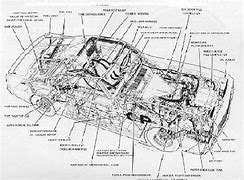The world is becoming increasingly connected, and cars are no exception. With the rise of the Internet of Things (IoT) and 5G technology, the future of car connectivity is set to change dramatically. In this article, we will explore how these technologies will impact the future of cars and what we can expect in the years to come.
5G Technology
5G technology is the fifth generation of wireless communication technology that promises to deliver faster speeds and lower latency. With 5G, cars will be able to communicate with each other, the internet, and infrastructure in real-time. This will allow for a range of new features, including:
- Real-time traffic information
- Instant software updates
- Advanced safety features, such as collision avoidance
- Seamless entertainment options
5G technology will also enable autonomous cars to operate safely and efficiently. Self-driving cars will rely heavily on real-time data to make decisions, and 5G will provide the high-speed, low-latency connection needed to deliver this data.
Internet of Things
The Internet of Things (IoT) is a network of physical devices that are embedded with sensors, software, and other technologies that allow them to connect and exchange data. In the future, cars will be a part of this network, allowing for a range of new features, including:
- Remote control and monitoring
- Real-time diagnostics
- Smart maintenance and repair
- Intelligent routing and scheduling
One of the most significant benefits of IoT technology in cars is the ability to perform remote updates and maintenance. Rather than taking your car into the shop, updates and repairs can be performed over the air, saving time and money.
The Future of Car Connectivity
The future of car connectivity is bright, with 5G and IoT technology set to revolutionize the automotive industry. Some of the key benefits of these technologies include:
- Improved safety
- Enhanced driver experience
- Lower costs of ownership
- Reduced environmental impact
As cars become more connected, they will also become more autonomous. Self-driving cars will be able to communicate with other vehicles and infrastructure in real-time, allowing them to make better decisions and avoid accidents.
In conclusion, the future of car connectivity is exciting, and we can expect to see a range of new features and capabilities in the years to come. From 5G technology to the Internet of Things, cars are becoming more connected than ever before, and this is set to have a significant impact on the automotive industry.
